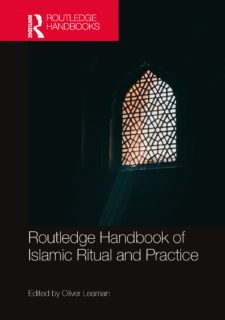Mahmoud Jaraba with book chapter on khulʿ
An article written by Dr Mahmoud Jaraba addresses the practice of khulʿ, a specific procedure, in which women can give divorce by returning the dower (mahr) or anything else that she received.
In countries where Muslims live as minorities, the Islamic Law of Personal Status is not officially recognized or enforced, and there is an absence of recognized Islamic authority; thus, a woman’s ability to use the right to terminate her religious marriage (nikah) without her husband’s consent appears to be a difficult experience, and, in some cases, an unresolved problem.
Based on his ethnographic fieldwork between 2013 and 2019, Jaraba understands khulʿ as part of dense social networks that have strong religious and social norms which tend to reinforce exclusive masculine identities. It is not only religious arguments and justification that play a decisive role in shaping and defining the practice of khulʿ, but social dynamics and patriarchal structure also have a role.
The text can be found as a chapter in the Routledge Handbook of Islamic Ritual and Practice, edited by Oliver Leaman. The eBook will be published on June 9, 2022.
